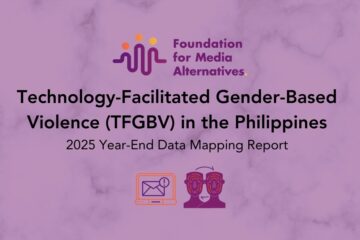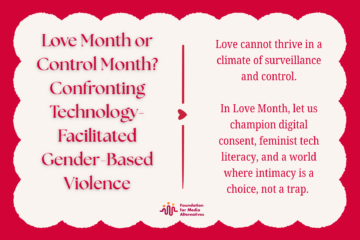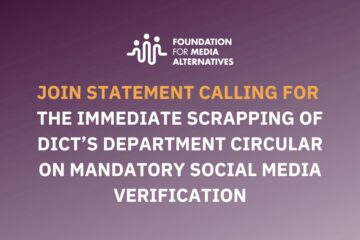Veto the SIM Card Registration Bill, Protect Fundamental Human Rights
#VetoSimCardReg #VetoSocMedReg
We, a group of concerned organizations and individuals from all over the world, call on Philippine president, Rodrigo Duterte, to veto the country’s proposed SIM Card Registration Act given the serious threat it poses to human rights, particularly the right to privacy and free expression.
If enacted, it would require the registration of SIM cards as a prerequisite to its sale and activation in order supposedly “to deter the proliferation of SIM card, internet or electronic communication-aided crimes, such as, but not limited to: terrorism; text scams; unsolicited, indecent or obscene messages; bank fraud; libel; anomymous online defamation; trolling; hate speech; spread of digital disinformation or fake news as defined under pertinent laws.” It will also mandate all social media account providers to require real names and phone numbers from individuals creating accounts on their platforms.
Our objection to the policy rests mainly on the following main reasons:
The theory that SIM card registration is a boon for law enforcement has been consistently debunked across jurisdictions. The experience of many countries have clearly demonstrated the numerous ways through which criminals and rogue state actors regularly circumvent this type of regulation. Worse, in some regions, this type of system has even caused the emergence of black markets where stolen or counterfeit SIM cards are sold, as well as an increase in handset theft incidents, as demand for untraceable phones spiked. Consequently, some countries that once considered adopting a similar system have either abandoned their attempts or steered clear of such aspirations entirely.
The potential for abuse and function creep is high, especially when it comes to the use of the registration information for surveillance. Given the bill’s vague scope, ambiguous provisions, and insufficient legislative guidelines, it projects an abundance of potential abuse scenarios in the event it is implemented. Mobile users will be asked to provide their personal data, including sensitive personal information, to third-party resellers—entities that would ordinarily have no business asking for such information. These entities are frequently ill-equipped to handle such amount of data, making them more prone to data loss or misuse. Meanwhile, the system would afford the government easy access to the data collected while providing little to no limitation on its use.
The mandatory registration of social media accounts prevents internet users from exercising their right to anonymity, and, for some, even their ability to express themselves and freely associate with others. Many countries recognize anonymity for the important role it plays in advancing privacy, free expression, government accountability, public participation, and debate, given the way it shields groups and individuals from attacks and unwarranted interference by both State and private actors. Just like encryption, it helps create a zone of privacy wherein people can feel safe with their personal opinions and beliefs. With mandatory registration, anonymity in online spaces becomes impossible for some sectors or at least elusive for many. Quite the trade-off for a measure whose effectiveness remains largely unproven.
The measure imposes unnecessary burden on mobile phone users and third-party resellers, which consist mainly of small businesses. Given the logistics and requirements involved in the registration process, including the updating or records, a significant segment of the population will inevitably experience a myriad of challenges just so they can communicate through the use of their mobile devices. This will likely to result in more discrimination and even the disenfranchisement of marginalized or vulnerable groups.
The proposal seeks to establish another massive database that immediately presents itself as a major security risk. If established, the SIM card registry would add itself to the Philippine government’s growing list of data repositories. In the wrong hands, it could serve as a potent tool for mass surveillance and authoritarianism, especially when coupled with other draconian measures introduced in recent years, such as the controversial Anti-Terror Law. To make matters worse, it readily presents itself as a premium target for malicious actors who would want nothing more than to secure access to its content and profit from them through inappropriate use or by auctioning them off to moneyed interested parties.
Premised on these grounds, we call on President Duterte to veto this proposed law. We also urge other groups and individuals all over the world to support this call to JUNK THE SIM CARD REGISTRATION BILL!
Signatories:
Organizations
- Access Now
- AKKMA National Coalition Pilipinas
- ASEAN SOGIE Caucus
- Blogwatch
- Democracy.Net.PH
- DEPRIVE, Inc.
- DigitalReach
- EngageMedia
- Foundation for Media Alternatives
- GANDA Filipinas
- Global Partners Digital
- Human Rights Online Philippines (HRonlinePH)
- In Defense of Human Rights and Dignity Movement (iDEFEND)
- Initiatives for International Dialogue
- International Women’s Rights Action Watch (IWRAW) – Asia Pacific
- Institute for Policy Research and Advocacy (ELSAM)
- Kanlungan Centre Foundation, Inc.
- LIGHTS Institute
- LILAK Purple Action for Indigenous Women’s Rights
- Manushya Foundation
- Mindanao Migrants Center for Empowering Actions, Inc.
- Philippine Alliance of Human Rights Advocates (PAHRA)
- Philippine Network Foundation (PHNET)
- Privacy International
- Sustainability and Participation through Education and Lifelong Learning (SPELL)
- UP Internet Freedom Network
- Wikimedia Foundation
- WomanHealth Philippines
- Women’s Legal and Human Rights Bureau (WLB)
Individuals
- Al Alegre, Researcher and Digital Rights Advocate
- Althea Serad
- Cheekay Cinco
- Corazon Valdez Fabros
- Dianne Olivan
- Dino Manrique, Writer
- Ed Legaspi
- Erika Navarro
- Fred Goddard
- Jonathan Domingo, Cyberactivist
- Ma. Maristela Miranda
- Maria Helen Dayo
- Marian Hukom, Artist
- Marlon Anthony Tonson
- Mary Louise Deloso
- Rosemarie Trajano
- Sharifah Aine Datu Tambuyung
For more information about or to sign on to this call, please contact info@fma.ph



0 Comments